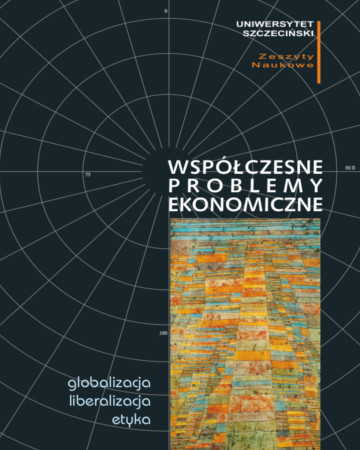
ISSN: 2081-9579
eISSN: 2353-2815
OAI
DOI: 10.18276/wpe.2017.15-03


Issue archive /
nr 15 (2017)
Bezwarunkowy dochód podstawowy a negatywny podatek dochodowy – alternatywne metody likwidacji „pułapki prekarności”
(Basic Income Guarantee (BIG) and the Negative Income Tax (NIT) – alternative methods of eliminiating the “precarity trap”)
| Authors: |
Mateusz
Guzikowski
Szkoła Główna Handlowa w Warszawie, Katedra Ekonomii Stosowanej |
| Keywords: | Basic Income Guarantee Negative Income Tax Austrian School of Economics |
| Data publikacji całości: | 2017 |
| Page range: | 9 (33-41) |
| Klasyfikacja JEL: | B53 H23 |
Abstract
The aim of the article is to assess, from the Austrian School of Economics’ point of view, alternative tools for eliminating the “precarity trap”, i.e. the Basic Income Guarantee (required by the precariat) and the Negative Income Tax (recommended by monetarists). Critical argumentation concerning both tools and their impact on the spontaneous market order are presented in the article. Austrian School of Economics, although reluctant to introduce all institutionalized tools of redistribution, seems to support subtly the Negative Income Tax.
Download file
Article file
Bibliography
| 1. | Acs, G., Toder, E. (2007). Should We Subsidize Work? Welfare Reform, the Earned Income Tax Credit and Optimal Transfers. International Tax and Public Finance, 14 (3), 327–343. |
| 2. | Burtless, G., Hausman, J.A. (1978). The Effect of Taxation on Labor Supply: Evaluating the |
| 3. | Friedman, M. (2008). Kapitalizm i wolność. Gliwice: Helion. |
| 4. | Gary Negative Income Tax Experiment. The Journal of Political Economy, 86 (6), 1103–1130. |
| 5. | Harvey, P. (2006). The Relative Cost of a Universal Basic Income and a Negative Income Tax. Basic Income Studies: An International Journal of Basic Income Research, 1 (2). |
| 6. | Hausman, J.A., Wise, D.A. (1979). Attrition Bias in Experimental Panel Data: The Gary Income Maintenance Experiment. Econometrica, 47 (2), 455–473. |
| 7. | de Jouvenel, B. (2011). Redystrybucja. Grabież czy ignorancja. Warszawa: Fijorr Publishing. |
| 8. | Levine, R.A., O’Conner, A., Watts, H., Hollister, R., Widerquist, K., Williams, W. (1975). A Retrospective on the Negative Income Tax Experiments: Looking Back at the Most Innovative Field Studies in Social Policy. W: J.A. Pechman, P.M. Timpane (red.), Work Incentives and Income Guarantees: The New Jersey Negative Income Tax Experiment. Washington: The Brookings Institution. |
| 9. | Mises, L. (2011). Ludzkie działanie. Warszawa: Instytut Ludwiga von Misesa. |
| 10. | Moffitt, R. (2003). The Negative Income Tax and the Evolution of the U.S. Welfare Policy. NBER Working Paper No. 9751. |
| 11. | van Parijs, P. (2004). Basic Income: A Simple and Powerful Idea for the Twenty First Century. Politics & Society, 32 (1), 7–39. |
| 12. | Rothbard, M.N. (2009). Interwencjonizm, czyli władza a rynek. Warszawa: Fijorr Publishing. |
| 13. | Standing, G. (2014). Prekariat: nowa niebezpieczna klasa. Warszawa: PWN. |
| 14. | Standing, G. (2015). Karta Prekariatu. Warszawa: PWN. |